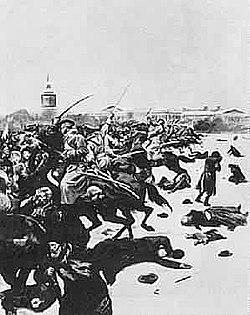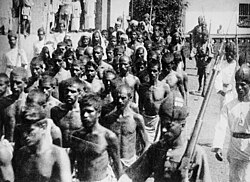Contents
- 17th century and earlier
- 18th century
- 19th century
- 20th century
- 1910s
- 1920s
- 1930s
- 1940s
- 1950s
- 1960s
- 1970s
- 1980s
- 1990–2000
- 21st century
- 2001–2009
- 2010s
- 2020s
- See also
- Prominent riots
- Related lists by topic
- Related lists by place
- References
- External links
This list needs additional citations for verification .(September 2009) |
This article needs to be updated.(November 2025) |
This is a chronological list of known riots.













